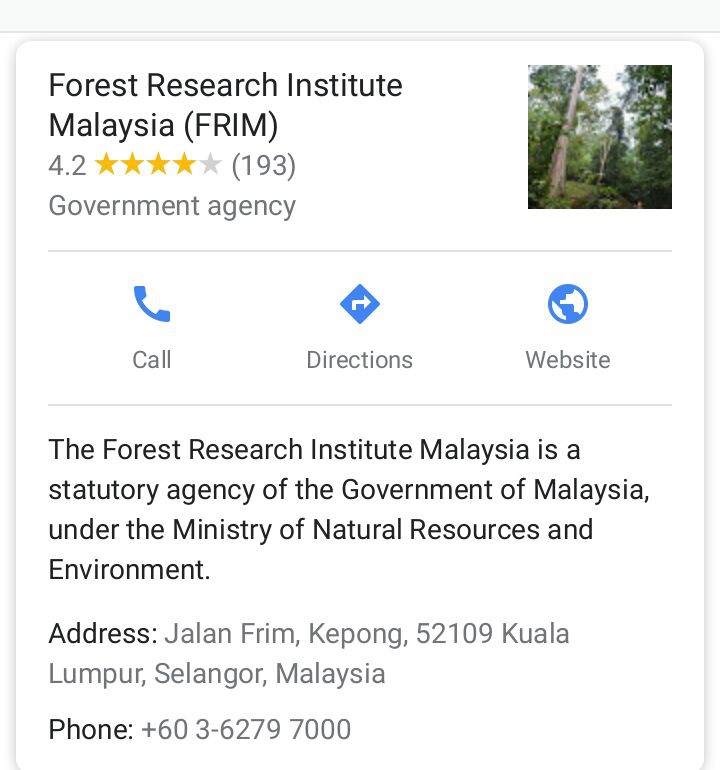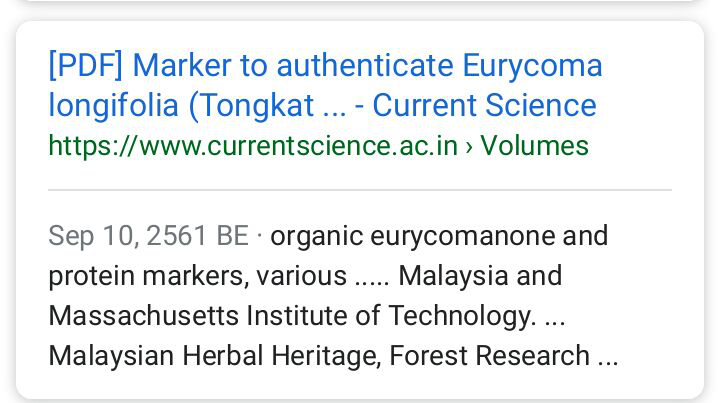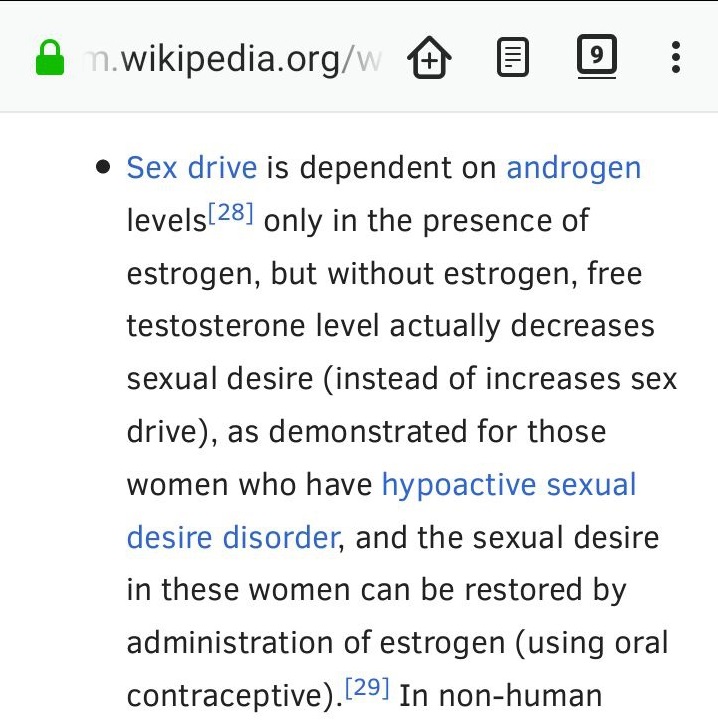
Articles, videos about Tongkat Ali, Black Ginger, and Butea Superba
Articles, videos about optimal sex
The full story of tongkat ali 1:200 extract, including cheats
Sumatra Pasak Bumi's first tongkat ali extract was 1:50 strength. This is the strength one gets naturally, without any sophistication.
You can try this at home. Just boil 5 kilograms of tongkat ali root chips for about an hour. Then discard the roots. Next evaporate the water.
The evaporation process is more complicated than boiling the chipped root to make a liquid extract.
Sumatra Pasak Bumi uses their own vacuum evaporation machine. Actually, the installation is bigger than a machine, so Sumatra Pasak Bumi may as well call it a vacuum evaporation plant.
The technic that Sumatra Pasak Bumi apply was invented by Henri Nestlé in 1866. It's based on standard physics. The lower the pressure that is exerted on a liquid, the lower the evaporation temperature (boiling point).
Thus, under low pressure, you can evaporate or condense milk without long cooking. You still have to heat your milk beyond 100 Celsius (centigrade) / 212 Fahrenheit for a few minutes to pasteurize it (kill all microorganisms). For this process, you need a pressure cooker, or autoclaving equipment, which, obviously, Sumatra Pasak Bumi also employ.
If you evaporated all water of your boiled tongkat ali root, you will get a hardened film sticking to your dish, glas or stainless steel, which you will have to scrap off and mill or grind. That will be your 1:50 extract, a mixture of inorganic and organic compounds. The inorganic compounds include minerals and salts. These are more crystalline than organic compounds which usually are softer to the touch.
Conventional wisdom is that the organic compounds, not the inorganic ones, account for the efficacy of tongkat ali. This is a realistic assumption because the organic compounds are specific to the plant, while the inorganic stuff is common to a fairly wide range of plants.
The 1:200 extract is derived from the 1:50 extract by mostly mechanical separation, centrifuging and filtering. Sumatra Pasak Bumi remove the more crystalline fractions which are more likely to cause gastrointestinal symptoms. From 1 kg of rather crude 1:50 extract, Sumatra Pasak Bumi obtain 250 grams of fine, heavier 1:200 extract.
Sumatra Pasak Bumi's extracts are not fermented. There is no chemical alteration comparable to the fermentation of grape juice into wine. There aren't many proteins in tongkat ali root, but those present may become denatured during the extraction process. Denaturation means that the shape of protein molecules are changed, but their chemical composition is not.
So, is Sumatra Pasak Bumi's 1:200 extract stronger than Sumatra Pasak Bumi's 1:50 extract. It is certainly more strongly concentrated. But unlike your common scammer who stretches his fake powders with sildenafil analogues, Sumatra Pasak Bumi do not add anything to Sumatra Pasak Bumi's products.
This means that nothing is in the 1:50 extract that also is in the raw roots, and nothing is in the 1:200 extract that wasn't before in the 1:50, or in 200 grams of dried chipped root.
So, could you just eat 200 grams of chipped root? Don't! You'd be sick. A human usually can't digest 200 grams of wood fiber. You are not a termite.
Even if you consume a tea brewed of 200 grams of chipped root, this may or may not make you feel uneasy.
On the other hand, if you swallow 4 grams of 1:50 extract, the chance for gastrointestinal stress isn't very great, and 1 gram of 1:200 extract is tolerable even for people with a sensitive stomach.
Thus, on the one hand, Sumatra Pasak Bumi's 1:200 extract is milder than the 1:50. It is also more concentrated for active ingredients. Thus 1 gram of 1:200 is stronger than 1 gram of 1:50, but as a matter of mathematical logic, as there is no chemical alteration, 4 grams of 1:50 cannot be weaker than 1 gram of 1:200
One would believe that the above explanation on extract ratios is logical enough.
An Australian herbalist in Malaysia claims that 1:100 is impossible, and 1:200 is outright ridiculous.
The issue is something else. The extract he sells isn't 1:200, so he has to twist things a bit to have people buy his product.
Never mind. Compared to others, this Australian guy in Malaysia still has a fairly Western level of integrity.
It gets definitely worse when you go from Malaysia to Singapore. There, apart from very money-minded Chinese folks, you find an Arabic, probably Moroccan guy with a Spanish citizenship. That one is the most pathological figures in the tongkat ali trade, and unfortunately, psychopaths can be quite dangerous.
To start with, he suffers from a profound inferiority complex, which, of course, he tries to overcompensate. So he claims three academic titles, and presents himself as CEO, even though he just runs his distribution from his apartment.
He attempted to sell himself as magazine model, an endeavor with which he didn't get very far, inspite of his publishing himself on the net in the nude (too short, too stout), and he tried, hold yourself, a career as masturbation guru.
Who is the guy? For the sake of entertainment, let's play Hitchcock on that question. Sooner or later, I'll tell you, or you will find out yourself.
But careful. This is a psychopath, and you could fall victim. He forges his bio, and he forges credentials for his tongkat ali scam, and Sumatra Pasak Bumi have notarized proof (falsified documents based on Sumatra Pasak Bumi's originals).
On the other hand, this person is not the only scammer in the tongkat ali trade, just the most childish one.
Scammers come and go, mostly at the mercy of Google. If Google gives them a rank, they can trick the public into buying their warez.
For some time, the claim of tongkat ali extract using alcohol as medium of extraction made the rounds. Baloney, of course. The cost for a commercial product using alcohol as extraction liquid would be far too high. And excise depatments around the world would charge any alcoholic-extract operation into bankruptcy.
Next came the eurypeptides bogus science. It's a goner, no need to elaborate.
Currently en vogue is "standardization" for eurycomanone. Many peddlers claim it, with ever increasing percentage, I am just waiting for a con artist who attempts to convince the public that his tongkat ali extract is 110 percent eurycomanone.
Our Arabic-Spanish Singapore psychopath, determined not to be outdone, already claims a tongkat ali extract that is both 1:200 and standardized for eurycomanone, not realizing that this is a logical fallacy.
As the eurycomanone percentage in tongkat ali is not consistent, a 1:200 extract would have some natural variation in eurycomanone (not every 200 kg have the same content). If an extract were standardized for the marker chemical eurycomanone, then the quantity of root equivalent would vary.
Psychopaths are lacking in the logical department. That is why our Arabic-Spanish specimen thinks it's a good idea to place Google ads warning against a 1:200 ploy, and then tries to sell readers "standardized 1:200".
But then, he also tried a career as maturbation guru. Was Dr. Kellog right after all about masturbation and mental health? Dr. Kellog developed corn flakes as breakfast dish to stop that certain practice, and ensure children's sanity.
Article continues below printscreens
Why all the fuss about eurycomanone anyway? The Forestry Research Institute of Malaysia has suggested that eurycomanone be used as a marker compound in identifying tongkat ali as ingredient in herbal concoctions. This makes sense because eurycomanone is a constant constituent of tongkat ali, and, apart from cellulose, the most abundant.
Article continues below printscreens
That doesn't mean that eurycomanone would be the chemical compound responsible for tongkat ali's effects. The amount of scientific research into eurycomanone is thin. The vast majority of scientific studies were made with full-spectum tongkat ali extract, not eurycomanone isolates.
Sumatra Pasak Bumi is dedicated to testosterone enhancement by means other than the outright injection of anabolic steroids or testosterone replacement therapy by patches or oral testosterone undecanoate (Andriol testocaps).
Anabolic steroids or testosterone patches or caps are not a satisfactory solution because some of the benefits of testosterone are related to the body's own synthesis of the hormone.
One side effect of exposing the body to exogenous testosterone is genital shrinkage. It's not the testosterone itself that makes for large genitals, but the fact that a lot of testosterone is produced by the genitals.
The most important downside of direct exogenous testosterone is that it messes with the whole hypothalamic-pituitary-gonadal axis.
The chain of events along this axis is, roughly, like this: low testosterone makes the hypothalamus synthesize and release gonadotropin-releasing hormone. Gonadotropin-releasing hormone activates the production of luteinizing hormone and follicle-stimulating hormone by the pituitary gland. And luteinizing hormone and follicle-stimulating hormone communicate to the male and female gonads (testes and ovaries) to increase levels of estrogens and testosterone.
This description is as simplistic as saying that a car is a machine with wheels, and if you put diesel in a tank, it makes a fire and travels. It also has a horn to tell obstacles to move out of the way, and it has a break, in case they don't.
You cannot explain a car in a few sentences. And neither can you explain the endocrine system in such brevity.
But certainly, bypassing the hypothalamic-pituitary-gonadal axis and just supplying exogenous testosterone is as crude a therapy as tuning a sluggish car by changing tires. It may or may not have the desired effect.
Most people understand cars better than their own endocrine system. Because cars are less complicated.
A theoretical approach will not do the trick of reviving a sluggish libido. An empirical approach is more promising. And the experience of traditional medicine with tongkat ali, butea superba, and mucuna pruriens clearly suggests that these herbals increase relationships drive and usually result in higher testosterone levels.
How exactly this happens isn't clear. But definitely, it's more complicated than tongkat ali, butea superba, or mucuna pruriens communicating directly with Leydig cells, telling them to turn out more testosterone. There will be multiple anchor points along the hypothalamic-pituitary-gonadal axis, possibly by a variety of pythochemicals found in tongkat ali, butea superba, and mucuna pruriens, and these phytochemicals will likely not only work on the endocrine system but also involve cross-connected neurotransmitters of the brain, notably dopamine.
Details unknown.
Just be an empirical person, not a theoretical one.
And, apart from considerations on the active ingredients and anchor points of tongkat ali, butea superba, and mucuna pruriens, here another piece of empirical science which shapes the trade policies of Sumatra Pasak Bumi company.
There is mounting evidence that plastics, most plastics, are an important factor in declining male fertility, lamented around the world.
The culprit most acutely identified is bisphenol A, a hard plastic traditionally used to manufacture water bottles.
Bisphenol A is a hormonal disruptor. It leaches measurable amounts of chemicals with estrogenic activity. These chemicals act like estrogens on the hypothalamic-pituitary-gonadal axis as negative-feedback signals. They tell the hypothalamus, pituitary gland, and gonads that enough of the natural steroid hormones testosterone and estrogens, are already circulating in blood plasma, and thus don't need to be further synthesized.
A fatal chain reaction for mankind, mostly men, because these envirinmental estrogens cannot replace testosterone in spermatogenesis, nor for libido, relationships desire, relationships function, orgasm, and relationships satisfaction.
Bisphenol A was the first plastic distinctly identified as hormonal disruptor, but scientist took the lead and investigated other plastics as well.
The result: most plastics, and quite possibly all, leach chemicals with estrogenic activity.
Do you still drink water from plastic bottles? Keep food in plastic containers? Buy health supplements in plastic packaging?
Better stop.
Especially if the issue is herbals for relationships enhancement.
Sure, Sumatra Pasak Bumi have traded tongkat ali extract in plastic bottles for decades, and many of Sumatra Pasak Bumi's customers achieved beautiful results.
But Sumatra Pasak Bumi have seen the writing on the wall for plastic, and, as a sign of the times, have switched to package Sumatra Pasak Bumi's extracts in double-layer or thick-layer paper bags before putting them into plastic bottles needed for light-weight international shipping. Thus, there is no contiguity of Sumatra Pasak Bumi's plastics or extract powders with plastics.
Packaging in paper bags isn't feasible for amounts of 100 capsules, thus Sumatra Pasak Bumi's new line of products is 400 capsules per container.
Anyway, the dosages for a noticeable effect from sexuality-enhancing herbals, classified as food, not as drugs, are in the range of several grams per day, and for such a regimen, single bootles of 100 capsules don't get you very far.













